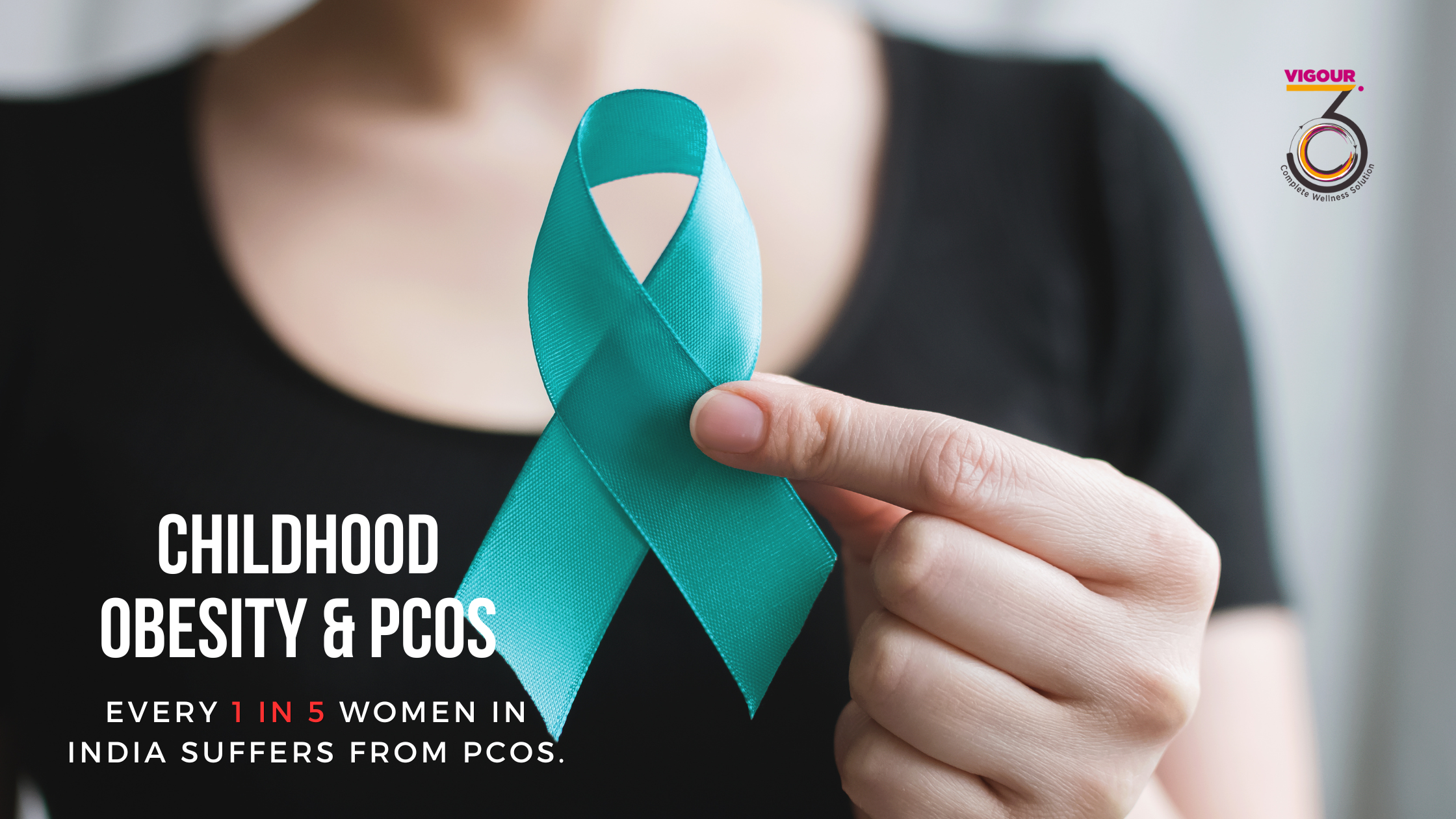
Polycystic Ovary Syndrome (PCOS) is a lifestyle disorder with a prevalence of 9.13% in Indian adolescent girls. September is PCOS month, let's learn some facts and spread awareness about the condition.
The disorder is commonly seen in teen girls and young women. Increased occurrence of childhood obesity is a contributing factor to PCOS in adolescent girls. As we know obesity give rise to myriads of chronic and noncommunicable diseases in the future, and PCOS is one of them. Complications of PCPS are not limited to infertility but also develop resistance to insulin, hyperinsulinemia, type 2 diabetes, metabolic syndrome risk of cardiovascular disease etc.
In scientific terms, it is called Stein-Leventhal syndrome. It is one of the common hormonal disorders in females. It is characterized by small cysts on large-sized ovaries.
In PCOS complex symptoms occur due to raised levels of male hormones. Increased resistance to insulin makes it difficult to lose weight.
.png)
PCOS is found in women in their early 20s or 30s with overweight or obesity. PCOS is also found in slim girls, research suggests obesity is not the only factor in the occurrence of PCOS. However, due to obesity fat tissue around the abdomen leads to unstable metabolic and hormonal changes, which gives rise to PCOS symptoms, along with these symptoms obesity is known to cause atherosclerosis, hypertension, diabetes, cancers, elevated blood cholesterol etc.
Though PCOS is found in Slim and normal-weight women too, the clinical progression of the disorder is more severe in overweight women. It significantly impacts their quality of life and overall health. PCOS take a toll on the metabolic as well as reproductive health of affected females.
Therefore, in adolescent girls with PCOS, the primary measure remains lifestyle changes and to reduce the harmful consequences of obesity.
At the age of puberty, the female body undergoes a lot of changes. The menstrual pattern varies and hormonal changes occur, at this age, it is due to changing patterns difficult to recognize the symptoms of PCOS, and therefore it mainly remain undiagnosed. It may impact physiological growth and development.The undiagnosed form of PCOS later manifests as a multi-system disorder leading to long-term health complications.
Up to 70% of women remain undiagnosed worldwide according to the World Health Organization (WHO). Vigour360 aims to educate students about PCOS through a school health program, highlighting the importance of recognizing early symptoms and understanding the condition.
Students are encouraged to adopt healthier lifestyles, including balanced diets and regular physical activity, to minimize the risk of obesity—a key factor in developing PCOS and related complications like insulin resistance, diabetes, and cardiovascular disease.
Vigour360 emphasizes the importance of early screening for childhood obesity. Identifying at-risk students allows for timely interventions, helping kid maintain good health and to prevent long-term health issues. Students showing symptoms of PCOS are advised to consult healthcare professionals for personalized guidance.
The program advocates for lifestyle changes, such as proper nutrition and regular exercise, to manage PCOS effectively. These adjustments can significantly reduce the severity of symptoms and enhance the overall quality of life for young girls.
Vigour360 encourages the inclusion of yoga practices—comprising poses, guided relaxation, breathing exercises, and meditation—as a way to alleviate anxiety and other symptoms associated with PCOS. This holistic approach supports both physical and mental well-being.
Comments (0)